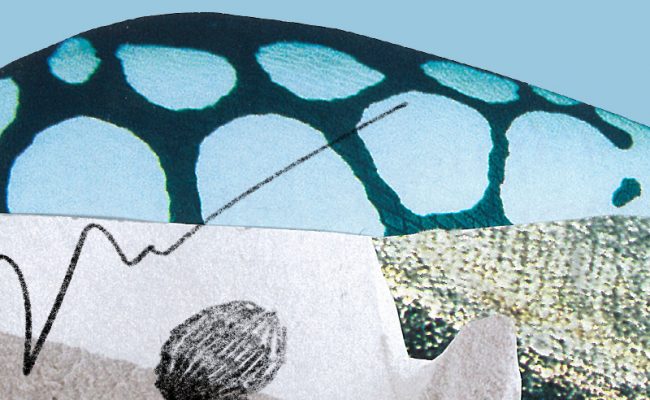This editorial is an introduction to proceedings from Activism @ the Margins, held in February 2020 at RMIT.
Last Christmas, when our book of essays on activism was hot off the press, the sky above Melbourne was shot with smoke. As the bushfires raged, we wrote, with an ominous eye to the horizon, about bodies in crisis, and dead bodies as symbols of resistance.1 We were spotlighting protesters on the line, what it takes to express resistance in an age of violence and extremities.
Today, we have entered a moment of accelerating body counts as rising figures of the dead and infected cast a global pall. Death is a ubiquitous spectre. Yet the body counts do not add up to any deep insights into what these numbers represent. The focus on the virus as a threat to survival, on infection, positions the body as contaminant, something to be feared, untouchable, the body as carrier and contagion. The virus infects, spreads, mutates, threatens, kills. It moves between us and through us invisibly as a silent killer. It alters who we are, how we see one another, and fundamentally changes how we live and need to live.
Dead bodies are more than symbols of resistance, they now signify a world in perpetual crisis, where species loss is a daily event. We are surrounded by death.2
We teeter on the razor’s edge of change between ‘strange times’ and the ‘new normal’, and the unfinished problems of the ‘old normal’. And so, we introduce this collection of reflections on activism, in awareness of accelerating and racist police violence, and of the apocalyptic futures that collide in the inadequate and oppressive languages of the viral present.
We see this as a critical moment for new activisms and reimagined futures. New activisms are necessary in an epoch of post-pandemic lifestyles increasingly governed by the logic of borders, climate uncertainty and fatality. New activisms remind us that the old normal was always conditioned by ongoing forms of racism, sexism and exclusion, environmental crisis and climate change, indexed by the continuing fight for a more equitable, just and caring world.
Everything may have changed in the natural world but there is only a hardening in the ways we deal with others, and no new bright light in the fields of social justice and human rights. What is the obvious end goal of #BlackLivesMatter in settler colonial societies? What is the future of the estimated 30 million refugees in the world, half of them under the age of eighteen?
‘New normal’ futures must never lose touch with what we were always fighting for, despite the obsessive focus on body counts, the divisive language of viral warfare, the impression that we have reached a point of no return. The point of no return is, and always will be, hurtling towards us. The point of no return is a reminder that the fight has not ended.
This was a point made clear during the pre-pandemic Activism @ the Margins conference held in Melbourne. The conference created space for reflection, intellectual dialogue and debate, drawing on the themes of human and animal rights, social and environmental justice, anti-racism and intersectionality that impacts on ways of consolidating seemingly disparate streams of activism.
The question remains: why raise our voices, and put our bodies on the line when the world is falling apart? Can art, song and ceremony save the planet? These questions, among others, emerged at the conference and heightened the urgent sense of our solidarity as we felt the future come to be viscerally at stake. As the spirit of protest reverberated around the world, we sent a call to scholar-activists, poets and philosophers: What are activism’s futures? Where are the moments of organic unity? How do we turn up the heat?
We bring you their responses in these pages.3 What emerges gestures to the possible, for the more humane, alternative forms of living. Consciousness here is neither static nor disparate; it wriggles in a gesture that signals both peace and an up yours to the system. A liveable new future must restart and restore a sustainable world.
This compilation on new activisms for uncertain times draws attention to key priorities: How to be a scholar activist in a world of crisis and upheaval? Sir Hilary Beckles, Vice Chancellor of the University of the West Indies, critically uncovers the role universities have played in colonisation and slavery. He is adamant that it is now incumbent on universities and scholars to dismantle the oppressions of the past, heal and repair the chaos and disadvantage left in the wake of the rise to power of the global North. And we agree.
The threats and vulnerabilities are real and change seems beyond arm’s reach. Yet change is a social network, a niggling voice of conscience, a raging against the machinations of the ruling class.
Olivia Guntarik captures the euphoria and despair of protest and of hope that can become the source of a just society. And yet the future that endures does not look bright for children.
Blue sky thinking demands risky experiments in art and activism.
Through facing greater pressures to defend land rights and resources, Indigenous peoples around the world know the risks of living on the margins only too well. The cultural leaders we hosted at Activism @ the Margins included Adrian Burragubba Wangan/Jagalingou, Puralia Jim Everett Turbuna, Paul Spearim Gamilaaray, Wanta Jampijinpa Patrick Walpiri, Curtis Taylor Martu, Anne Poelina Nyikina Mangala, Willie Brim Buluwai and Kado Muir Ngalia. Each spoke of the various ways in which they are undertaking the risky and perilous work of defending Country.
This edition of Overland features some of these as follows:
Jim Everett writes of the pioneering activism in Tasmania since the 1960s against a backdrop of Aboriginal-led community mobilisation to establish the national Aboriginal movement.
Willie Brim reflects on how, recovering from his initial shock to see these strange beings called hippies turn up in his country, he learnt from that era new ways to enact activism through music.
Wanta Jampijinpa focusses on the known and unknown through ceremony, how cutting through the ‘shit’ to find the kernels of gold in knowledge can be key to our survival.
Adrian Burragubba details his ongoing work to campaign against Adani’s destruction of sacred lands in the Galilee Basin of central-western Queensland. As we write this, he has just issued an eviction notice to Adani for trespassing on Wangan and Jagalingou sacred homelands. We urge you to support #StandingOurGround in their demands to cease mining and all extractive activities on Country.
Aboriginal activisms are built on longstanding systems of ethics and values that constitute traditional knowledges. Suzi Hutchings Central Arrernte discusses how Aboriginal musicians are engaging with traditional and contemporary music, using hip hop to advocate for social change. N’arweet Carolyn Briggs articulates Boon Wurrung values through the activism of her great grandmother Louisa Briggs and through First Language uses to express truth and connection. Similarly, Victoria Grieve-Williams Warraimaay reflects on the legacy of Oodgeroo of the tribe Noonuccal who became a national Aboriginal leader and activist. Oodgeroo understood that Aboriginal culture holds the key to dealing with change and survival; she integrated the moral and the spiritual into political ways of being in the world.
We continue to learn from Australia’s Aboriginal cultural leaders and their diverse activisms. We acknowledge Gary Foley’s untiring political activism and living legacy; his leadership is invaluable and his commitment to the struggle has paved the way for us to stand strong in uncertain times.
This collection of voices, perspectives and reflections represents our commitment to activism and the truths they uphold. They are a clarion call to the answers the world desperately seeks in this time of hopelessness and broken dreams. As Wanta reminds us, we must fossick through the shit to reveal more truths and this indeed requires taking the road less travelled – we need to use our intellect, feed the mind.
Survivors of colonisation can teach us what it takes to survive, says Sam Altman in his piece about the immediate eco-Apocolyptic future, which will be published in the next edition of Overland. Sam originally wrote this in early 2019 and since then the COVID19 pandemic has given us direct experience of global and social collapse, but, he argues, climate and ecological catastrophes are whole orders of magnitude worse. We are in the age of the Anthropocene and his is a clarion call to act, strategise and prepare.
Survival takes know-how and the understanding that justice marches with the truth, and there is no longer any room for gammon ways of being. If Aboriginal peoples survived Ice Ages by reimagining their relationship with nature, then this is the methodology we need. If activism is about changing minds and changing lives, then art is about provocation.
Endnotes
‘Together we are more: New media for old tales’, from sitins to #revolutions: Media and the changing nature of protests, Olivia Guntarik and Victoria Grieve-Williams (eds)., Bloomsbury, New York, 2020, p. 15.
Deborah Bird Rose, “Double Death”
We acknowledge Scheherazade Bloul and Lu Lin for their editorial support. With thanks to Will Scarlett for inspiration at a critical time.
Read the rest of Overland 240
If you enjoyed this piece, buy the issue
Or subscribe and receive
four brilliant issues for a year




